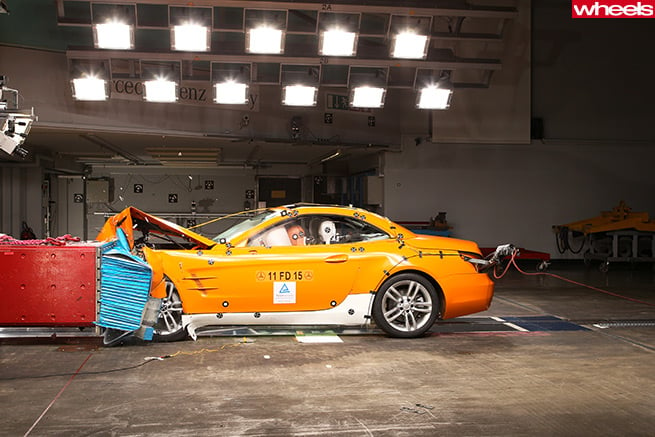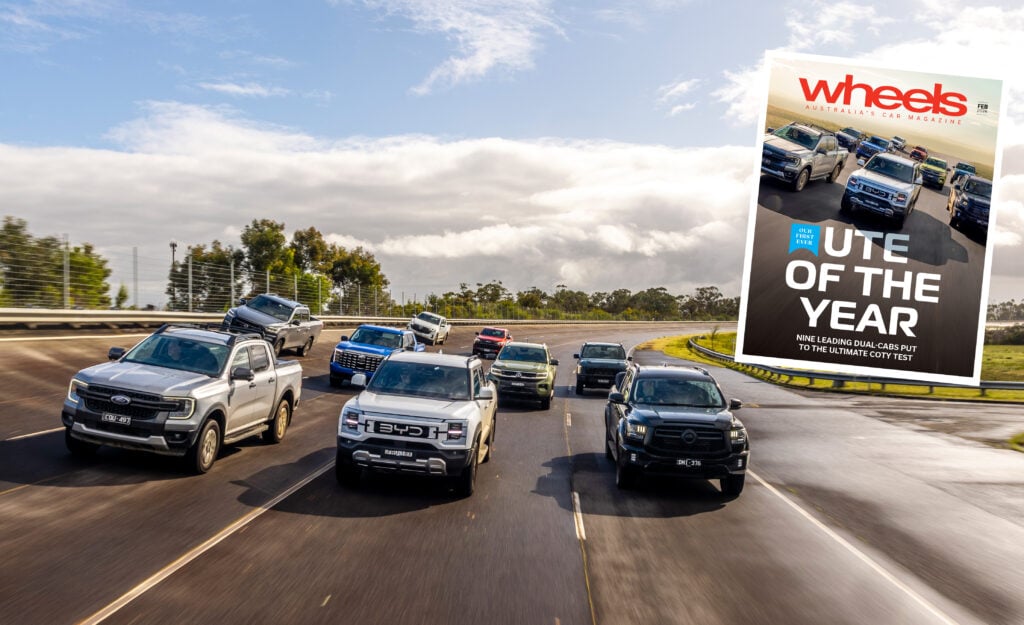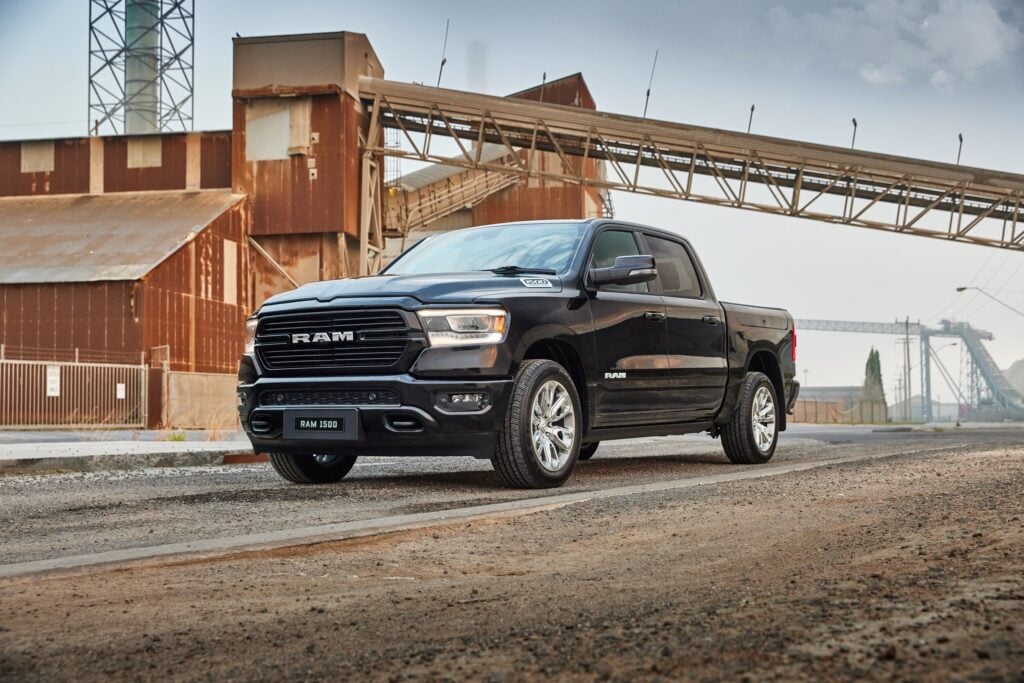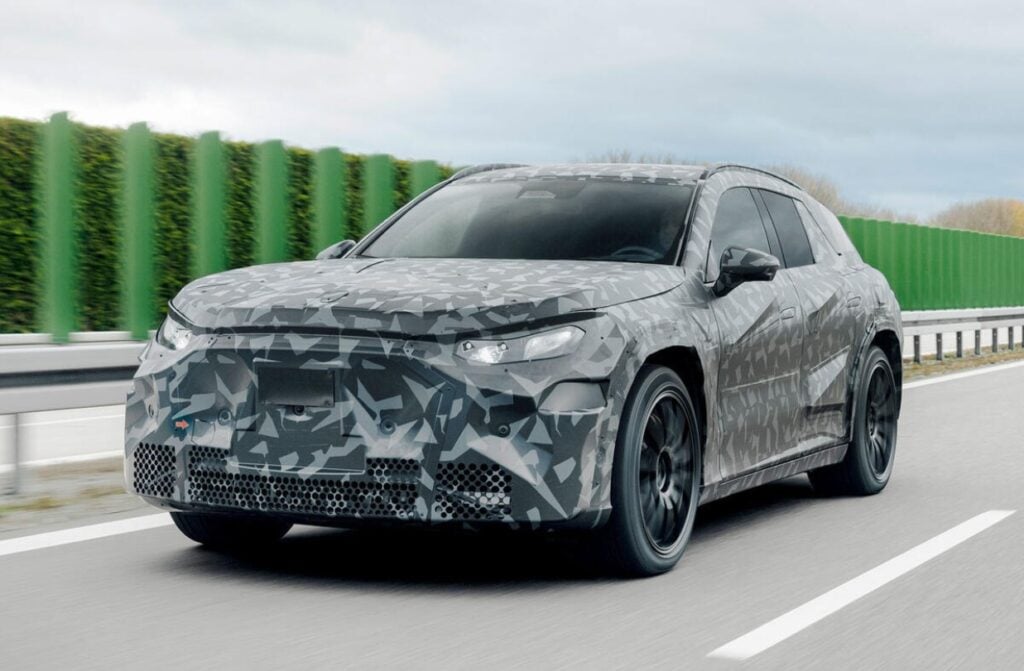Australian car insurers have “blood on their hands” because many of them insist that smashed cars be fixed using cheaper, non-genuine parts and unauthorised repairers.
That’s the view of Mercedes-Benz Australia/Pacific, which today launched a scathing attack on insurance companies via outspoken corporate communications boss David McCarthy, who also gave state and federal governments a clip on the way through.
Benz believes car occupants and pedestrians alike suffer because of the practice, which it says is driven by insurers chasing increased margins on repairs.
“The reality is, the use of non-genuine parts and the way they are fitted is the greatest threat to road safety and road trauma that we as a community face,” McCarthy said.
“I know that is a big statement, but the fitment of non-genuine parts … by people who don’t know what they are doing means they are messing around with the technology in the car, they are messing around with the safety.
“Insurance companies in Australia – the overwhelming majority of them – are fitting parts to cars that are counterfeit, that are deficient and they are compromising the integrity of the safety.
“All they are interested in is repairing a car to look good; they are not repairing the car for the next accident.
“Quite frankly, they have blood on their hands.”
McCarthy would not name insurance companies involved in the practice, but on the flip side was prepared to nominate QBE – with which Mercedes-Benz offers its own insurance scheme – and the insurance arms of the state-based motoring bodies as supporters of using genuine parts.
Benz used the example of a bonnet for a current W212 E-Class, which ex-factory is made from aluminium and weighs 13.1kg. A steel imitation bought by the company weighed more than 28.2kg and would react differently in a pedestrian accident.
“The genuine bonnet is designed to deploy in the event of an impact,” McCarthy explained.
“There are sensors detecting all sorts of things, including when a person hits the front of the car … that bonnet is designed to deploy up in a particular way and at a particular speed, and absorb a lot of the impact of the head and protect the head from the hard parts as much as possible under the bonnet.
“You replace that with a steel bonnet that weighs twice as much, is it going to deploy at the same rate? We can guarantee it won’t. And is it designed to absorb the impact? No, it’s not.”
Benz is also certain non-genuine parts are not as well-made as factory parts and points out that extra weight adds to fuel consumption.
The genuine bonnet used as an example costs about $1300, the imitation about 50 per cent less. Benz estimates that’s the gap that generally applies between genuine to non-genuine parts, be it a bonnet, a guard, tail-light or other commonly replaced part.
McCarthy conceded that Benz was also acting to protect its investment in spare parts supply, and the 17 auto body repairers around Australia that are trained and authorised to work on the company’s products.
But he insisted safety was the company’s primary motivation for speaking out publicly.
“Yes, it is about protecting our business, but it is about protecting our customers,” he said.
“Think about your life, you think about your partner’s life, you think about your friend’s life, you think about a pedestrian. When you fit non-genuine parts in an environment that is not qualified, is not trained to fit those parts, you are playing Russian roulette and the insurance companies are loading the gun.
“They are messing around with your life and everyone else’s life to boost their bottom line.”
McCarthy said Benz had engaged in discussions with insurance companies, other car companies and state and federal governments about the issue.
“This is a serious public safety issue that is not being addressed by state or federal government.
“There are so many laws around what you can drive, when you can drive, how fast you can drive, who can drive, but there is no law about a car that is repaired.”
The Insurance Council of Australia refused to comment on Mercedes-Benz’s claims, saying in a statement: “Individual insurers have different business models for repairs and spare parts. You will need to contact individual insurers for their views.”





